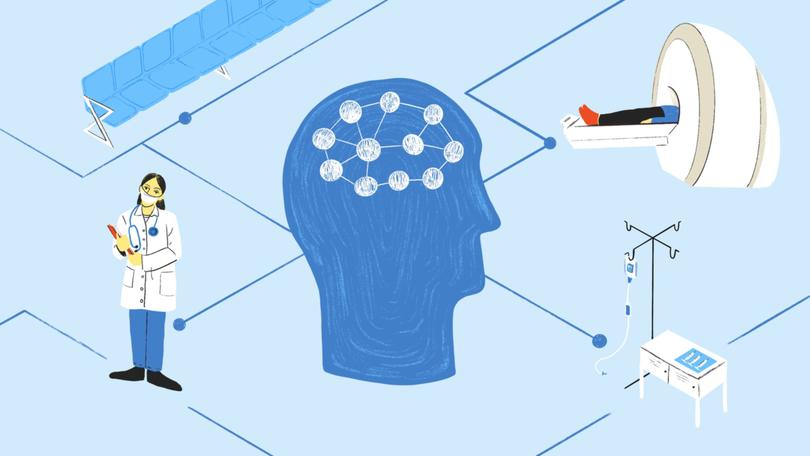GEMMA ACTON: The cracks appearing in our healthcare system
GEMMA ACTON: It’s easy to take universal healthcare for granted until you realise with a shock that it’s a privilege available in few countries.

I’ll always remember the date the UK’s National Health Service launched as it coincided with my grandmother’s 21st birthday — July 5, 1948.
Given she was a devoted nurse throughout a long career that included stints making her way through a bombed-out London to care for courageous returned soldiers, sailors and airmen, it seemed to me a very fitting coincidence.
It’s easy to take universal healthcare for granted until you realise with a shock that it’s a privilege available in few countries. Australia’s Medicare system is widely perceived as one of the best in the world and not only by foreigners looking wistfully in.
Sign up to The Nightly's newsletters.
Get the first look at the digital newspaper, curated daily stories and breaking headlines delivered to your inbox.
By continuing you agree to our Terms and Privacy Policy.A recent Commonwealth Bank report shows that 83 per cent of Australians rate the quality of healthcare they receive as being between “good” and “excellent”.
As someone who has delivered two babies in the public healthcare system in the past two years through successful IVF outcomes achieved through private clinics, I cannot say enough wonderful things about everyone who helped us along the way.
And yet, it’s clear the strains are showing. Where we live, less than an hour from Sydney’s central business district, I cannot find a bulk-billing doctor within a 20-minute drive. Those that do offer bulk billing are so full that even their waitlists are closed.
The nearest partially bulk-billing medical centre I can attend only offers this payment option if you just turn up and wait. I recently went for a (government-mandated) cervical cancer check and waited four hours.
I’ve since learned that such areas are known as “bulk-billing deserts”. These tend to crop up in wealthier areas where clinics have enough patients who are willing and able to pay higher prices.
A freeze on Medicare rebates and the same soaring operating costs that many businesses are dealing with such as rents, energy and labour, limits clinics’ options about how to make the books balance.
Another key problem is an acute lack of general practitioners — already — and coming through the system.
The doctor I eventually saw said that the incentives to be a GP are falling far behind the lure of pursuing other medical paths like being a cosmetic surgeon where the training time is only a little longer for a far more substantial financial reward.
Recent data indicates the bulk-billing situation is improving with a rate of 77.7 per cent in March, up 2.1 percent since the November launch of higher payment incentives for practitioners to encourage bulk-billing. In human terms, that equates to 950,000 more GP visits being bulk-billed in the intervening five months.
While encouraging, that’s not enough to get a lot of people across the line. The same CommBank Health survey shows more than seven in 10 people delaying or cancelling their healthcare appointments in the past year with affordability constraints the key factor.
Furthermore, nearly three in 10 are postponing routine check-ups or ignoring specialist referrals as they’re worried about the cost.
It’s not that we’re comfortable with the idea of deteriorating personal health. Indeed four in 10 are adopting healthier lifestyle habits through better diet and exercise in an attempt to ward off the need for a medical visit.

It seems a three-pronged approach has the potential to ease an undesirable situation. In addition to the Government re-evaluating how much and where it targets its contribution and patients taking more responsibility for their own health, technology offers promising possibilities.
Many surgeries have used online booking systems for years and increasingly GPs are utilising tools like artificial intelligence notetakers to improve the efficacy of their consultations. A doctor I spoke to in Melbourne said that using an AI notetaker allows medics to spend more face-to-face time with their patients as well as save time between consultations which has hitherto been lost to furiously inputting comments into the computer.
He estimates this tool alone is saving GPs between 30 and 90 minutes a day when successfully implemented.
The survey indicates patients look on AI with trepidation which is absolutely fair given it’s a nascent technology. Perhaps unsurprisingly, older Australians are the least comfortable with its usage in our healthcare and Gen Y (25-40 years old) the most. Interestingly, even more so than Gen Z (16-24 years old).
Overall, patients are most wary of the idea of AI assisting with diagnoses or potential medications. Before we stray into that territory though, there’s much AI can do that should be far less controversial.
The fact that no national secure communications system exists is disappointing in 2024. During my pregnancies, I was rushing around faxing some documents and hand-delivering others depending on the requirements requested by various health providers. It was inconvenient, and confusing and I’m not sure all that safe given that several times administrators requested that we resend the faxes that had been lost upon arrival.
Naturally, we have to set a higher bar when it comes to incorporating technology into our healthcare system as it is literally a matter of life and death.
Yet, that can’t be a reason for us to stick our heads in the sand. AI is developing at such an astonishingly fast rate, lives are also being put at risk by a lack of action to fully explore its potential as early as possible.
Gemma Acton is the Seven Network’s finance editor.

